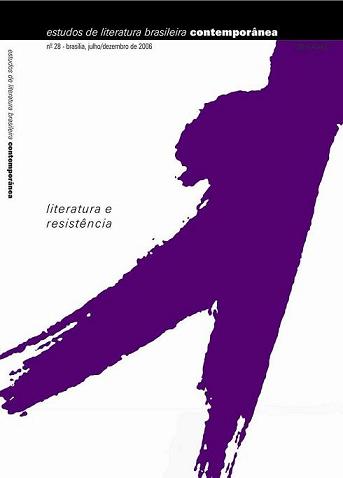Um autor, várias vozes:
identidade, alteridade e poder na narrativa de Milton Hatoum
Abstract
De origem libanesa, Milton Hatoum trata, em seus dois primeiros romances, da trajetória de famílias de imigrantes. A partir de seu terceiro romance, o foco recai sobre uma família brasileira que tem em comum com as famílias anteriormente retratadas estar localizada no Norte do Brasil, mais especificamente na cidade de Manaus. Neste trabalho, busca-se verificar questões como identidade, alteridade e poder que ocorrem em um lugar específico, mas que não podem mais ser tratadas como regionalismo já que acontecem em um espaço onde as diferenças entre vários sujeitos compõem um painel de tensões impossíveis de se explicar apenas a partir de uma geografia. Adensando tais tensões estão a voz autoral e a diversidade presente nas personagens.
Downloads
References
HATOUM, Milton. Relato de um Certo Oriente. São Paulo: Companhia das Letras, 1989.
””””””””. Dois irmãos. São Paulo: Companhia das Letras, 2000.
””””””””. Cinzas do Norte. São Paulo: Companhia das Letras, 2005.
””””””””. “Norte”. Entrelivros, nº. 18. São Paulo: Duetto Editorial, 2005, p. 26.
PICCHIO, Luciana Stegagno. “Oposições binárias em literatura: o Exemplo Brasileiro”. Trad. de Iracema Gomes Soares. Diógenes ”“ Revista de Ciências Humanas. Brasília: Editora da Universidade de Brasília. 1984, pp. 83-100.
RIBEIRO, Darcy. O povo brasileiro: evolução e sentido do Brasil. São Paulo: Companhia das Letras. 1995.
SCHWARZ, Roberto. Um mestre na periferia do capitalismo. São Paulo: Duas Cidades. 1990.
Downloads
Published
How to Cite
Issue
Section
License
Authors who publish in this journal agree to the following terms:
a) The authors maintain the copyright and grant the journal the right of first publication, the work being simultaneously licensed under the Creative Commons Attribution License-Non Commercial 4.0 which allows the sharing of the work with acknowledgment of the authorship of the work and publication this journal.
b) Authors are authorized to enter into additional contracts separately, for non-exclusive distribution of the version of the work published in this journal (eg publish in institutional repository or as a book chapter), with authorship recognition and publication in this journal.
c) Authors are allowed and encouraged to publish and distribute their work online (eg in institutional repositories or on their personal page) after the editorial process, as this can generate productive changes, as well as increase the impact and citation of published work (See The Effect of Free Access).
d) The authors of the approved works authorize the magazine to, after publication, transfer its content for reproduction in content crawlers, virtual libraries and the like.
e) The authors assume that the texts submitted to the publication are of their original creation, being fully responsible for their content in the event of possible opposition by third parties.


